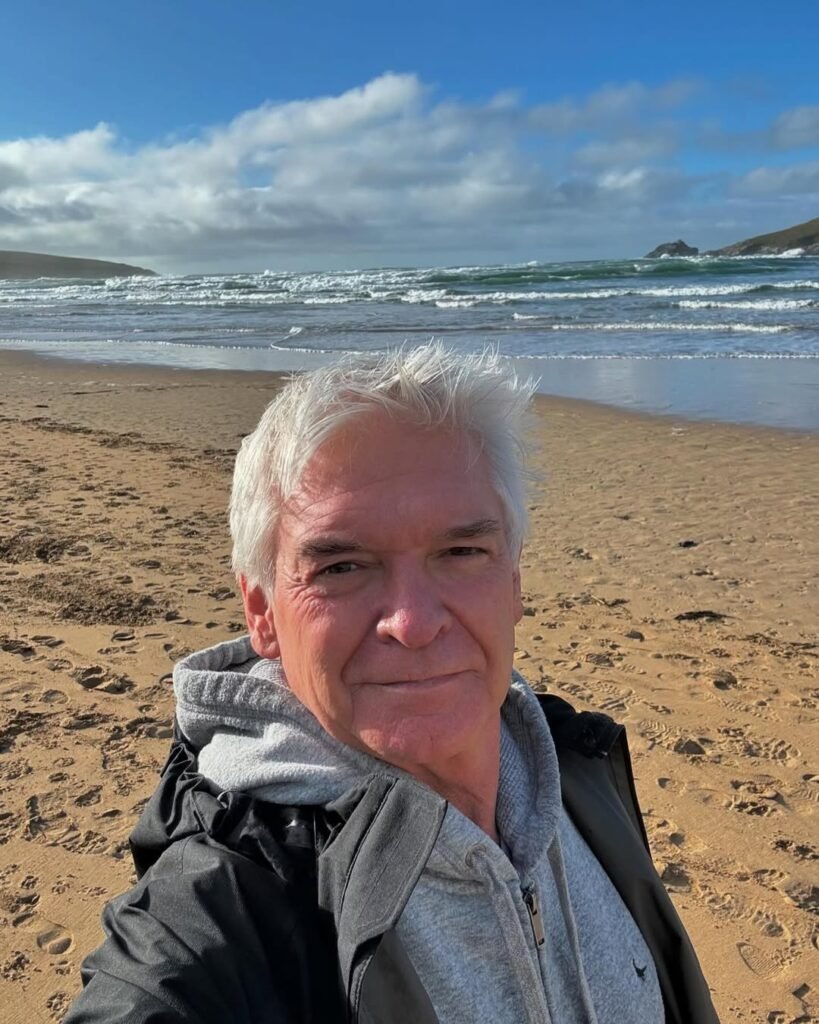Phillip Schofield’s name still dominates headlines in the UK, stirring strong opinions whether in TV lounges or social media feeds. Renowned for over two decades as the steady anchor of ITV’s “This Morning”, Schofield’s story over the last two years has been an extraordinary journey. From immense popularity to public scrutiny, and most recently, to his emotionally charged return to television, his trajectory offers a striking lesson in how fame, scandal and resilience play out in the glare of Britain’s media spotlight.
A Turbulent Exit from Television
Schofield’s fall from grace was as dramatic as it was public. In May 2023, rumours surfaced about the nature of his relationship with a younger male colleague on “This Morning”. At first, both parties privately denied any impropriety to ITV bosses. However, Schofield later admitted that the affair had taken place, describing the relationship as “unwise, but not illegal.” The scandal brought with it a deluge of tabloid attention and ultimately ended his longstanding partnership with co-host Holly Willoughby, fracturing one of the most popular duos in UK daytime television.
The repercussions were widespread. ITV and Schofield’s management agency both cut ties with him, with the broadcaster announcing that it would continue its hit show without him. The Prince’s Trust also severed links, removing him as an ambassador, while a review into workplace relationships at ITV soon followed.
Holly Willoughby, for her part, returned to presenting with a candid admission about the impact of her former co-host’s dishonesty. She acknowledged feeling “shaken, troubled and let down”, thanking fans for their support and addressing concerns for Schofield’s wellbeing. It was a rare and raw moment in British daytime television.
Coping with Loss and Public Backlash
Schofield’s personal trials deepened in October 2024 with the death of his mother. In a statement, he called her the “rock” of his life, further emphasising just how isolated he felt in the aftermath of both professional and personal setbacks. Amid media attention and online criticism, the presenter openly described himself as “utterly broken,” admitting that he would have struggled even more if not for the steadfast support of his daughters. He withdrew from the public eye and found solace in his close family, choosing to remain silent while speculation swirled.
A Tentative Return: “Cast Away”
September 2024 saw an unexpected turn: Phillip Schofield’s quiet but symbolic return to television as the subject of Channel 5’s three-part documentary “Cast Away”. Alone on a remote island, Schofield confronted his own reputation and mental health struggles, describing his journey as one of “survival, both on a desert island and off it”. Unlike a traditional reality programme, the show offered viewers an intimate glimpse into Schofield’s psychological state—his regrets, the pressure of criticism, and the realities of rebuilding a life in the wake of public disgrace.
His appearance on “Cast Away” attracted mixed reviews. Many viewers sympathised with his open discussion of his “darkest days,” while others questioned whether this was a meaningful comeback or simply a fleeting attempt to reclaim sympathy. Regardless of opinion, the show prompted a national discussion about mental health, forgiveness and the redemptive possibilities for public figures.
Public and Industry Reactions
Reaction from the British public and media insiders remains divided. A number of experts argue that Schofield’s prospects for a mainstream TV comeback are slim, with major terrestrial broadcasters reluctant to bring him back due to the magnitude of his exit and the public backlash. Some suggest podcasting or digital platforms could offer opportunities for rehabilitation, with audience sentiment proving the ultimate deciding factor in whether he reclaims a public profile.
Industry personalities have also offered their perspectives. Notably, Chris Tarrant labelled Schofield as “over-exposed”, reflecting a broader sentiment that the era of infallible TV titans has closed. Meanwhile, other celebrities and commentators cautioned against the relentless scrutiny, drawing attention to inconsistencies and possible biases in the handling of scandals, particularly concerning sexuality.
Enduring Impact on UK Television
The ripple effects of Schofield’s downfall are still being felt across the broadcasting sector. ITV, for instance, introduced new policies requiring all staff—including freelancers and contractors—to disclose any personal connections at work to enhance transparency and prevent similar crises in future. Iconic shows closely associated with Schofield, such as “Dancing On Ice,” were quietly discontinued, and new faces stepped in to fill the pivotal “This Morning” sofa, reflecting a period of change and uncertainty for British morning television.
Conclusion
As of summer 2025, Schofield’s on-screen presence remains minimal, with little indication of a major return. He has been spotted occasionally in public but generally avoids media appearances and high-profile events, choosing a quieter life away from the spotlight. Nonetheless, his legacy as a broadcaster and the conversations around his personal and professional choices continue to influence dialogue both within and outside the media industry.
Ultimately, Phillip Schofield’s story remains a blueprint for the modern challenges of public life in the UK: the price of fame, the possibility of redemption, and the enduring impact of honesty—both personal and professional—on the nation’s trust. Whether his story serves primarily as a warning or a lesson in resilience is still being written, but one thing is clear: very few broadcasters have shaped British popular culture in quite the same way as Phillip Schofield.
To read more click here

